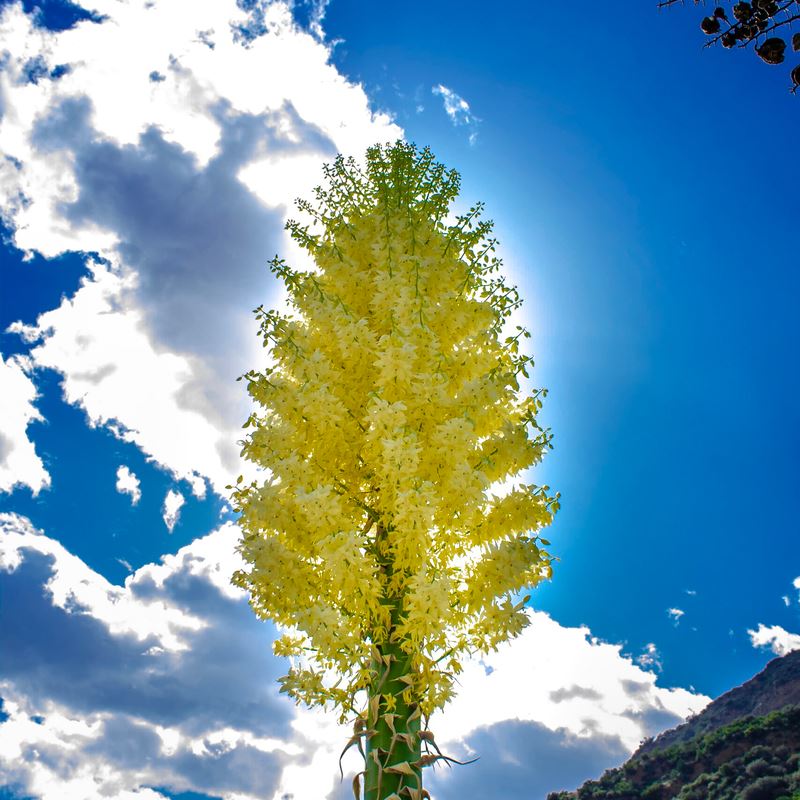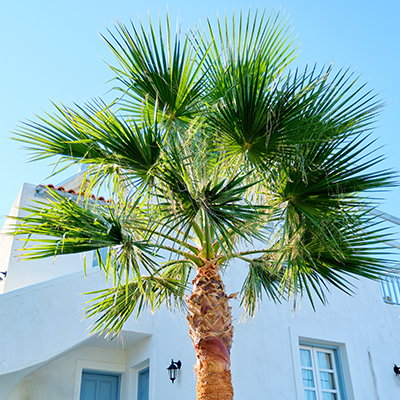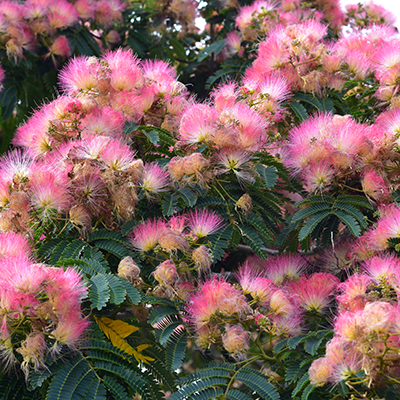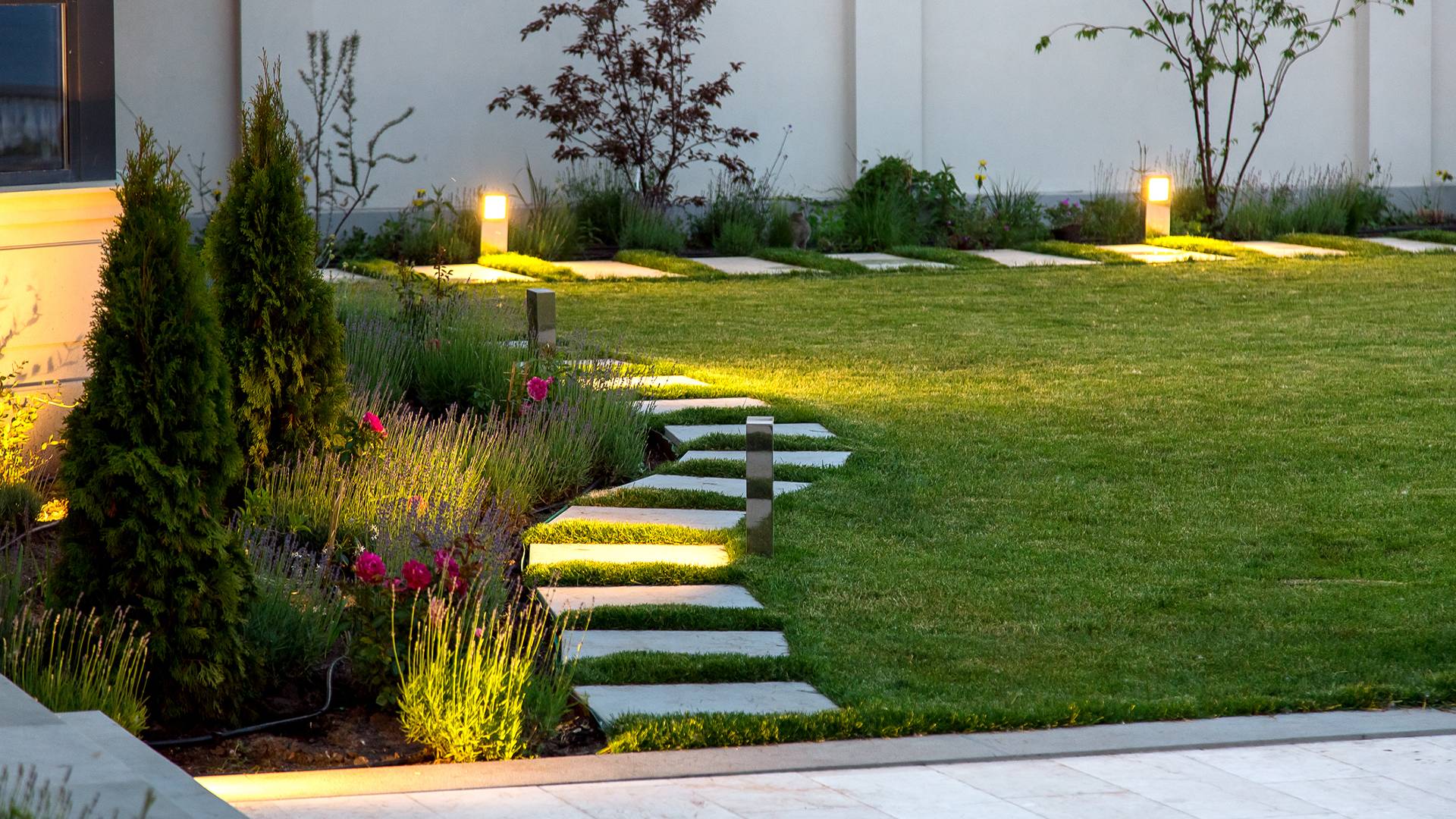
Nothing encapsulates the vibe of Southern California better than a palm tree silhouetted against the setting sun. From postcards to road names, the palm tree is a symbol of Los Angeles. But it hasn’t always been that way. Most of the palm trees lining the streets of LA today are Mexican Fan Palms. In the early 1930s, over 40,000 Mexican fan palms were planted as part of a $100,000 city-wide beautification project for the 1932 Olympic Games. Because they were planted outside their native environment, their lifespan is significantly shorter, and these trees are approaching a century old. When these trees die off we should consider replacing them with native plants to ease the burden of a warming climate.
Problems With Mexican Fan Palms
Palm trees require massive amounts of water and provide little shade. The palms also face a threat from fungus and a destructive weevil that is decimating the palm population in the city. Even the native bird populations don’t like nesting in them. As our climate continues to warm, we should replace palm trees and other nonnative plants with a more sustainable choice. City planners have announced that any dead palm trees will not be replaced with more palms and instead would be replaced with trees that require less water, offer more shade, and have longer lifespans.
The Advantage of Native Trees
As we mentioned above, native trees are a great choice for Southern California yards. Native plants are well-adapted to our hot and dry climate. They require less water and can provide shade. Here is a list of the best trees that are adapted to the Southern California climate.
Coastal Live Oak
Only a few of these ancient trees still remain in California. Once flourishing in California, the coastal live oak provides a habitat for thousands of animals, birds, and insects. Their large canopy can clean much more carbon from the air than a palm tree. They can grow to massive heights and can live for hundreds of years. The best part is, they require very little water. No matter where you plant one, a coastal live oak will grow to fill any yard and provide cooling shade.
Chaparral Yucca
Chaparral yucca is a perennial plant that grows from a dense ball of stiff, long, green leaves that can be one to three feet long. The leaves are fibrous and tipped with a sharp spine. Native peoples used to use the leaves to weave baskets and mats. When the plant matures between 5 and 8 years of age, it grows a flower stalk. The stalk grows quickly at four to six inches per day and can reach 8-10 feet in height. The stalk blossoms with white or purple-tinged flowers in a large cluster at the top.
Mimosa Tree
The mimosa tree is Native to southwestern Asia but it adapts great to the Southern California climate. It grows to 15-50 ft. tall, offering dappled shade for areas below. The flowers are loved by butterflies, hummingbirds, they support the local bee population. Blooms begin to emerge in late spring and persist into mid-summer. Flowers range in color from red to deep pink to flesh-pink to white.
Toyon
Toyon is an Ohlone word and is one of many names Indigenous peoples of California have for this plant. Toyon is a perennial shrub with a native habitat throughout the western part of California and the Sierra foothills. The toyon plant is related to the common apple but the fruit needs to be processed to be edible but native birds can enjoy them just how they are. Consider planting toyon in your yard or replacing a non-native tree with one. Toyon can grow up to 8 feet tall and provides shade for backyard patios.
Call The Professionals at Lawnscape Systems For All Your Lawn Care Needs
Using native California plants for designing your landscapes is a great way to help out your community and reduce water use. Lawnscape Systems has over 25 years of experience providing commercial and residential lawn care services to the people of Southern California. Our experienced technicians are trained and licensed to fertilize and apply insecticides, fungicides, and herbicides to treat stubborn weeds on commercial and residential lawns. Learn now by connecting with us online or by giving us a call at (714) 909-1836. You can also reach out to us on social media via our Facebook page.

